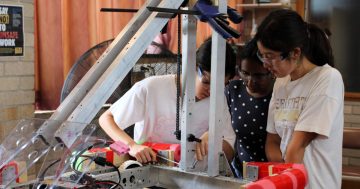Riia O’Donnell* says career frameworks create a growth pathway for staff and outline future organisational needs, and they are fast becoming a must-have for employers.
 Career frameworks are fast becoming a must-have for employers — and if you haven’t heard the term, you soon will.
Career frameworks are fast becoming a must-have for employers — and if you haven’t heard the term, you soon will.
These frameworks use an architectural approach to define job roles and job families, rather than individual job duties.
Once articulated, organisations and employees can identify opportunities within a job family, rather than just within a department.
Such frameworks create a growth pathway for staff and outline future organisational needs.
They articulate exactly what is needed to perform the work today, what is needed to grow for tomorrow and what avenues are available based on skills already obtained; they create the context to communicate career and development options for an employee, while clearly delineating expectations.
What is a career framework?
The wealth of data available in talent management systems is changing how employers view skill sets and manage growth.
“Many organisations are shifting to a cloud-based HRIS,” Ilene Siscovick, partner and career frameworks global solution leader at Mercer, told HR Dive in an interview, “and as they shift they’re organising their roles and job families to align with the technology and better organise their talent systems.”
A career framework allows an organisation to identify skills and capabilities within job families, but perhaps more importantly, identify areas where learning and development can be beneficial.
A recruiter, for example, will need to have top communication and interpersonal skills.
For growth within their department, there may be a clear pathway to recruiting management.
But those same communication and interpersonal skills are also highly valued in sales or managerial positions, opening up more opportunities for development and growth.
A modern career framework, Renee Smith, senior director of talent management consulting at Willis Towers Watson, told HR Dive in an email, “is a platform that allows individuals to plan and build a portfolio of work experiences that facilitate capability building within a company or through alternative work relationships.”
To attract and retain top talent, particularly in a tight candidate market, organisations must develop and promote a compelling employee value proposition (EVP).
“That EVP consists of a good package of salary, benefits and job perks, as well as a path to advancement,” Sue Todd, chief strategy officer at CorpU, told HR Dive via email.
“A career framework describes that path to advancement.”
For organisations, the frameworks create a baseline.
Once skills are identified, if any are found lacking, the organisation can develop a plan to resolve them.
“Will they focus on training existing employees,” asks Siscovick, “look externally for talent, hire contingent workers, or even automate to resolve the skills gap?”
Creating frameworks
Smith suggested three steps for HR to take when beginning the framework process:
Define job families and create globally consistent definitions of job levels.
Clarify skills and knowledge required for different types of work: “This should be attached to positions (and other work opportunities like projects) on the demand side,” Smith said, “as well as to individual talent profiles on the supply side.”
Provide employees access to effective career management tools, “including a talent profile that showcases the individual’s knowledge and experiences,” she said. Organisations may even consider online talent platforms to help connect employees with development opportunities.
Siscovick points to information Mercer put together on the value of career frameworks: “Frameworks enable better workforce planning,” she noted; “with better data and better reporting, you know what to build and how to grow talent.”
As the workplace continues to evolve, it may be unclear which skills will no longer be needed in the future.
Although most agree that soft skills like creativity, leadership and resilience will be valued, locking into rigid career paths may be short-sighted.
Career frameworks provide a chance to develop a more diverse portfolio of skills, applicable across the broader range of needs organisations may see in the future.
The payoff for organisations and staff may be increased engagement and retention.
When employees feel valued for the work they perform today and see the potential for tomorrow’s success, they’re more likely to plan their career path within the organisation, rather than outside.
“As hierarchies begin to dissolve in preference to dynamic team-of-teams-type organisational structures — where people form into teams to solve problems and disband once the solution is in place,” Todd said, “the idea of moving up in hierarchy will become far less important than a person’s portfolio (and diversity) of experiences, skills, knowledge and project work.”
* Riia O’Donnell is a HR professional with over 15 years’ experience in every discipline of the field.
This article first appeared at www.hrdive.com.











